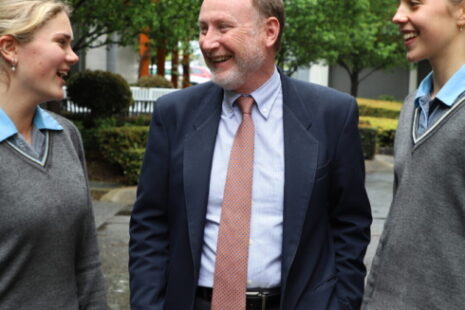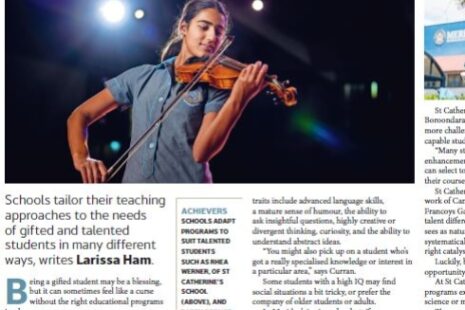To Speak or not to Speak
It is no secret that teenagers love to talk. They talk amongst themselves, in private, and with an increasing dependence on social media that promotes bite-sized commentary. However, that same outspoken student who is comfortable on social media can be quite reserved in a classroom setting where more complex content, language, argument, and sustained engagement are required from them.
The classic cannons of rhetoric or the three pillars of public speaking mean very little to modern students, and yet they have never been more relevant in the construction of reality in the post-truth era of fake news. Historically and currently, skilled speechwriters can imbue the words of a charismatic public performer or public leader with seeming depth and authenticity.
Our European counterparts have long valued the art of ‘holding your own’ in conversation; traditionally, social competence and social resilience have often been a corollary of the ability to speak to a wide range of people on a variety of topics. Indeed, the culture of social and verbal competence cannot begin early enough.
We all know students who love the written word and can lose themselves happily in the world of novels, but the art of mastering the verbal word has often been considered the poor cousin. Therefore, encouraging and teaching students explicitly to articulate not only their frustration but their learning is a constant challenge for English teachers. Generating student enquiry and enabling them to articulate and share their ideas, define and evaluate their goals, and express their viewpoints on controversial issues are necessary skills, otherwise students run the risk of remaining silent academically as well as socially. 1
The renewed emphasis on analysis and performance of oral language by the Victorian Curriculum and Assessment Authority (VCAA) in the new Study Design in English recognises the importance of skills required to be able to tailor one’s content, language, argument and manner for a specific audience. Students practise these skills in their English classes from Years 7 to 12, and more broadly, are invited to enter the large number of Debating and Public Speaking competitions which run throughout the year. Thus, not only do students practise the skills of rhetoric consciously, they also develop the skills of analysing when verbal language and argument are used to manipulate, exploit, cajole or entice them as an audience to agree with a speaker’s point of view. Fortunately, appeals to audience fear, creating an ‘us and them’ mentality and the construction of the ‘other’ as alien and undesirable, are all devices with which students are now familiar. In moving from a position of passive acceptance of a speaker’s views to critically challenging them, students are far more prepared to question the range of political and social viewpoints they will face beyond the school gates.
Therefore, creating appropriate conditions in the classroom which ensure that students are comfortable expressing themselves, contributing to class discussions regularly, and also writing and shaping arguments in public speeches, allows their own genuine personality and perspectives to emerge and be acknowledged by their peers, rather than remaining socially invisible.






